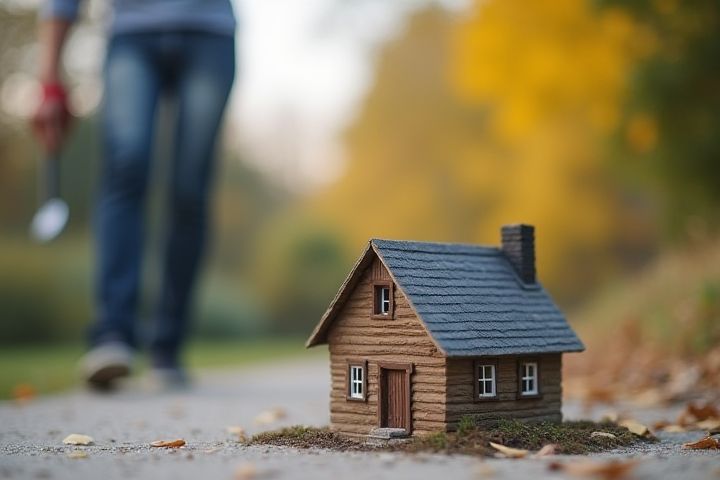
A licensed home inspector is qualified to inspect a house, ensuring it meets safety codes and regulations. This professional examines key components such as the roof, foundation, plumbing, electrical systems, and HVAC units. Real estate agents often recommend experienced inspectors to provide an objective assessment for buyers. You can also hire specialized inspectors for specific issues like pest infestations or mold detection. Many homeowners opt for inspections before selling, as this can help identify potential problems and improve marketability.
Who Can Inspect A House
Licensed Home Inspector
A licensed home inspector is a qualified professional who conducts thorough evaluations of residential properties. Trained to identify potential issues, these inspectors examine structural components, roofing, plumbing, electrical systems, and more, providing you with a detailed report on their findings. Typically, home inspections cost between $300 to $500, depending on the property's size and location. Hiring a licensed inspector can help you make informed decisions during the home-buying process, ensuring that you understand the property's condition before finalizing your purchase.
Structural Engineer
A structural engineer, with specialized expertise in assessing the integrity and safety of a building's framework, plays a crucial role in house inspections. Licensed professionals often evaluate load-bearing walls, foundations, and roof structures to ensure adherence to safety codes and regulations. Their assessment typically encompasses the examination of materials used and potential structural issues, providing homeowners with a detailed report on necessary repairs or reinforcements. Engaging a structural engineer for an inspection can reveal critical insights, particularly for older homes or properties showing signs of distress.
Termite Inspector
A termite inspector, often a licensed pest control professional, specializes in identifying and evaluating termite infestations in residential properties. These experts use advanced techniques and tools, such as moisture meters, thermal imaging, and visual inspections, to assess the extent of damage caused by termites. In the United States, approximately 4 million homes are treated for termites each year, emphasizing the importance of timely inspections. Ensuring your home undergoes a thorough termite inspection can protect your investment, potentially saving you thousands in repairs and maintenance.
Pest Control Specialist
A Pest Control Specialist is qualified to inspect a house for various pest infestations, employing specialized training and equipment to identify issues that may not be visible to the untrained eye. Typically, these experts examine areas such as basements, attics, and crawl spaces, where pests often invade, and their insights can significantly enhance your understanding of potential risks. In the United States, many Pest Control Specialists hold certifications and licenses, ensuring they adhere to industry standards and regulations. Regular inspections by these specialists are essential, as studies show that 14% of U.S. homes experience some form of pest issue each year.
HVAC Technician
An HVAC technician is a certified professional specializing in heating, ventilation, and air conditioning systems. They possess the expertise to inspect, maintain, and repair these systems, ensuring optimal performance and energy efficiency. Typically, an HVAC inspection will include evaluating the condition of the furnace, air conditioning units, ductwork, and thermostats, often recommending necessary repairs or upgrades. Your HVAC technician will also check for any safety hazards, ensuring your home maintains a comfortable and safe environment.
Plumber
A licensed plumber can expertly inspect residential plumbing systems, identifying issues like leaks, corrosion, or improper drainage. Many plumbing inspections include a thorough examination of pipes, fixtures, water heaters, and sewer lines, ensuring they comply with local building codes. State regulations often require plumbers to have specific certifications, ensuring their expertise in tackling complex plumbing issues. When buying a house, hiring a plumber for inspection can save you from unexpected repairs and significant expenses later on.
Electrician
Electricians are licensed professionals trained to inspect various electrical systems within a house. Their expertise includes assessing wiring, circuit breakers, and outlet safety to ensure compliance with safety standards and codes. On average, a thorough electrical inspection can range from $200 to $500, depending on the size and complexity of the home's wiring. You should consider scheduling an inspection every 5 to 10 years to maintain safety and efficiency in your electrical systems.
Roofing Contractor
A Roofing Contractor is a qualified professional who can inspect the condition of your roof, assessing its structural integrity and identifying potential issues such as leaks or damage. They use specialized tools and techniques to evaluate the roofing materials, ensuring compliance with local building codes and safety standards. During the inspection, a Roofing Contractor will provide detailed reports on necessary repairs or maintenance, which can save you from more extensive damage and costs in the future. This assessment can be particularly crucial if your roof is over 20 years old or has recently endured severe weather conditions.
Environmental Health Inspector
An Environmental Health Inspector is a qualified professional responsible for assessing various aspects of a property's environmental safety and compliance with public health regulations. Their duties include inspecting for hazards such as mold, lead paint, and radon levels, ensuring that the home adheres to health codes and safety standards. They often conduct an analysis of waste disposal and water quality, providing homeowners with critical data on potential environmental risks. Engaging with an Environmental Health Inspector can help protect your family's health and ensure a safe living environment, especially in homes built before 1978, when lead paint was commonly used.
General Contractor
A general contractor typically oversees all aspects of a construction or renovation project, including house inspections. They possess the necessary expertise to evaluate the structural integrity, compliance with building codes, and overall condition of a property. Often, general contractors will have established relationships with licensed inspectors, ensuring thorough assessments that meet the required standards. Hiring a general contractor for inspections can streamline the process and provide you with reliable insights into potential repairs or improvements needed for your home.
